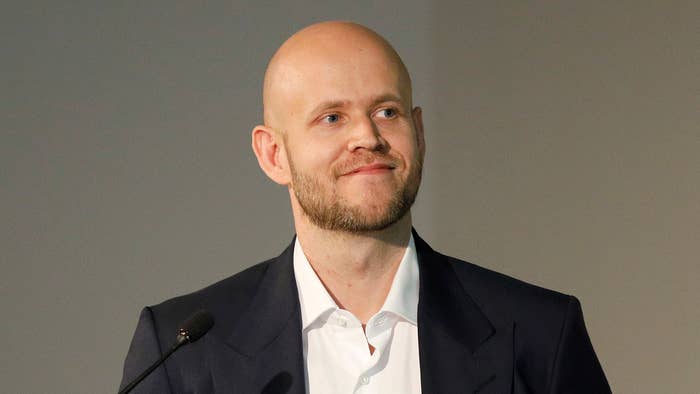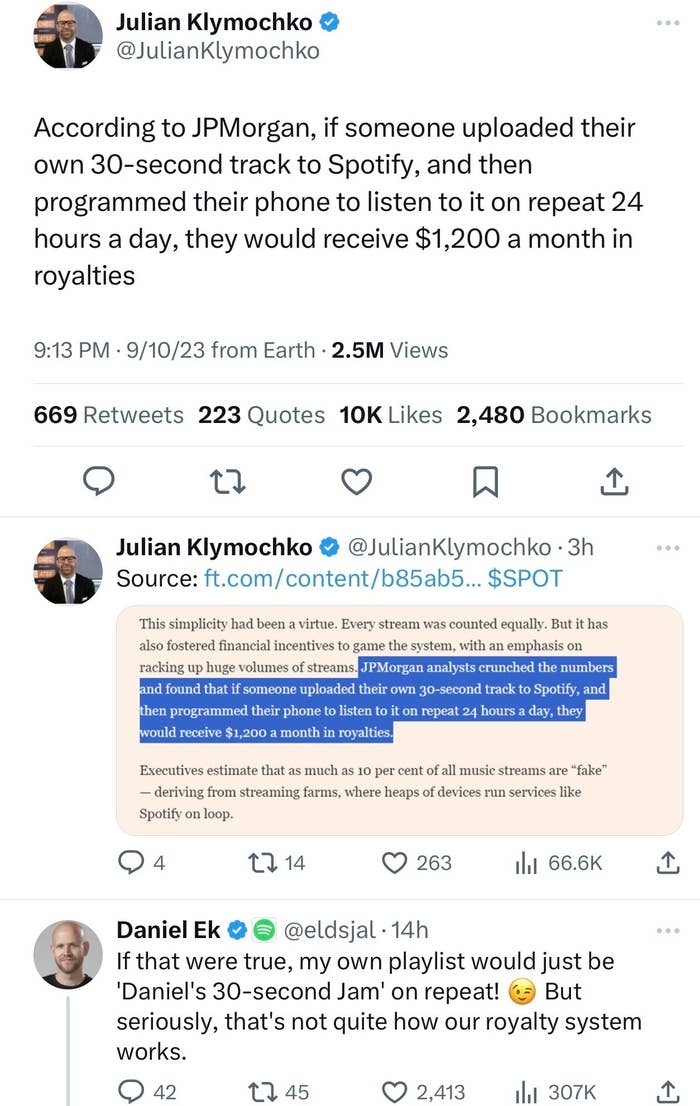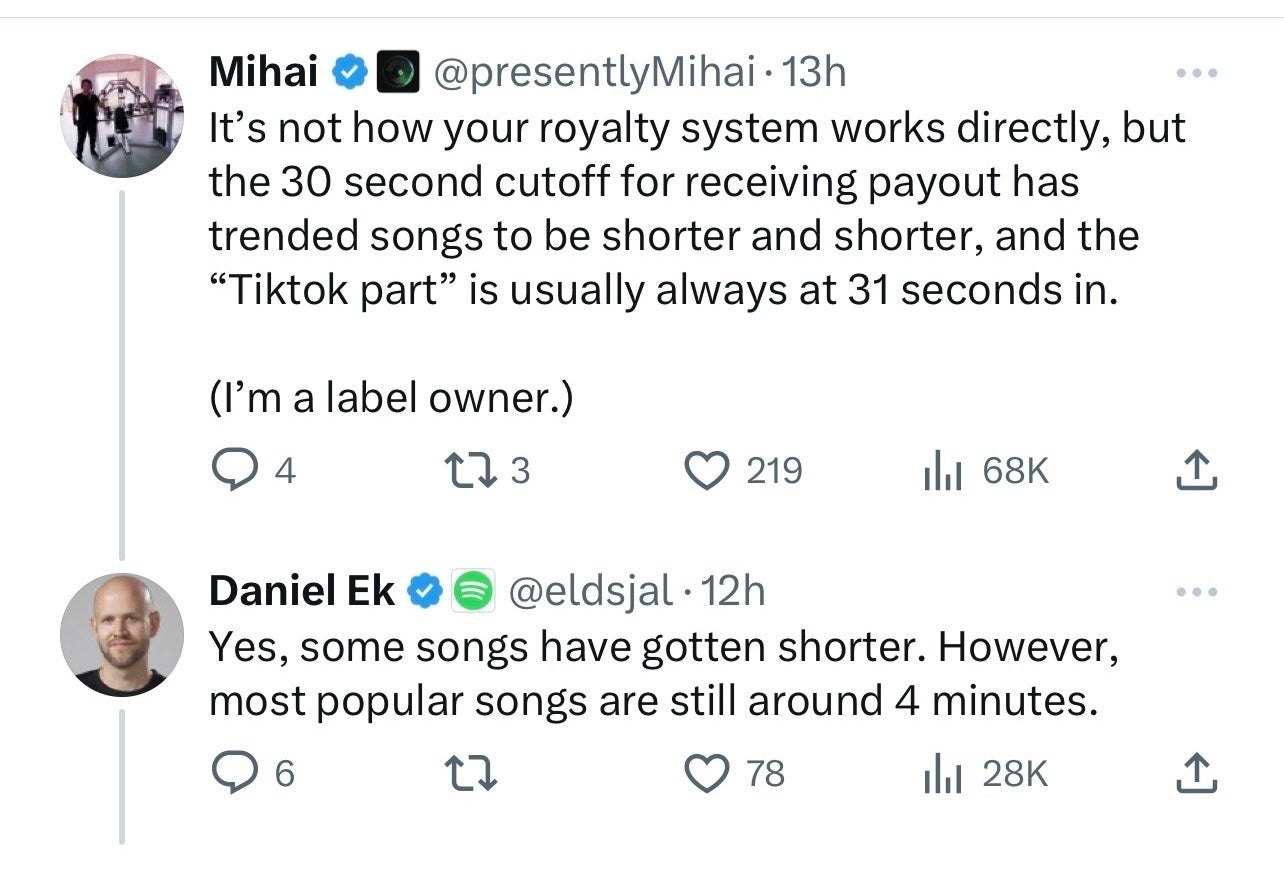
Spotify CEO and founder Daniel Ek has responded to a tweet calling out a streaming scheme on the popular platform that could supposedly make artists a lot of money.
On Monday, a Twitter user shared a quote from a recent piece by the Financial Times that stated artists on Spotify could make $1,200 a month in royalties if they upload a 30-second track and then "program" their phone to listen to the track on repeat for 24 hours.
A Twitter user shared the quote on their page, which eventually got to Daniel Ek, who then clarified the streaming scheme isn't quite how things work over at Spotify when it comes to royalties.
"If that were true, my own playlist would just be 'Daniel's 30-second Jam' on repeat," he said. "But seriously, that's not quite how our royalty system works."

A label owner chimed in on the topic under Ek's tweet and wrote that although that's not how the royalty system works, 30-second songs still get a major benefit, especially on platforms such as TikTok.
"It's not how your royalty system works directly, but the 30-second cutoff for receiving payout has trended songs to be shorter and shorter, and the 'Tiktok part' is usually always at 31 seconds in. (I'm a label owner.)"
Ek agreed with the label owner's take that songs are getting shorter in time, but four-minute songs are still popular on the platform.
"Yes, some songs have gotten shorter. However, most popular songs are still around 4 minutes," Ek wrote.

Spotify's royalty program isn't the only thing that has people talking about the popular platform. According to a report by Swedish outlet Svenska Dagbladet, criminal networks in the country have been using the streaming platform to launder money acquired in drug deals, robberies, contract killings, and fraud.
Gang members have allegedly been able to launder money by converting cash into Bitcoin, which is then used to pay for false Spotify streams of artists connected to the gangs. When the money is paid back to them by Spotify, it has effectively been "cleaned," so to speak.

